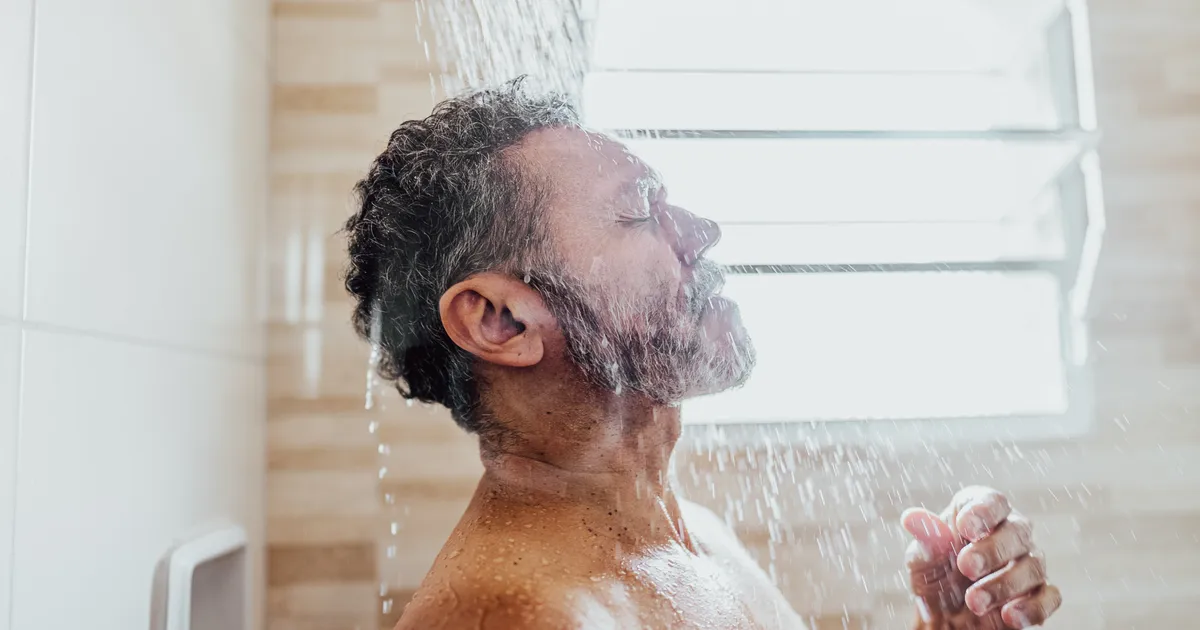Copyright HuffPost

The more stressed some of us get, the more we can find ourselves wanting to double (or triple) down on our self-care routines. Case in point: the “everything shower.” It all started on TikTok, and now the platform is exploding with people demonstrating hours-long shower sessions that include exfoliation, shaving, hair masks, body scrubs, face masks, oils, serums and more. The appeal, in large part, lies with the fact that it’s a way to take control of one small part of your life, when so much else seems out of control. It’s a little bit washing up, a little bit spa treatment and a whole lot performative wellness ritual — and even more water. Many everything shower proponents describe it as a reset after a hard week and a way to “start over” with a scrupulously groomed body, head to toe. They sing the praises of time spent focused just on themselves, tending to each square inch of flesh and treating themselves with kindness and devotion. But is it a little too much? Should our skin be under running water for such a long period of time? And what about a long shower’s impact on our increasingly drought-ridden planet? Here’s what science-based experts, not TikTok influencers, have to say about the everything shower trend. Advertisement Cleansing our skin is important, but stripping it can be detrimental. You need to keep your skin clean for all sorts of reasons, said dermatologist Dr. Nada Elbuluk, a professor of clinical dermatology at the University of Southern California. “Cleansing is important for removing dirt, dead skin cells and other contaminants that we may come into contact with throughout the day, such as bacteria, viruses and fungi,” she added. You should make sure you’re keeping “hot spots” clean, said dermatologist Dr. Mojgan Hosseinipour: “There are a few areas you should always wash daily, including armpits, groin, feet and face, because those accumulate sweat, bacteria and oil more quickly.” Hosseinipour also recommended showering after every workout, and possibly more frequently if you live in a hot and humid climate or are prone to sweating and body acne. Advertisement But overdoing it is a strong “no” from these doctors. “Overwashing the skin may strip natural oils and lead to excessive dryness,” Elbuluk said. “Avoid hot water, too, because the hotter water is, and the longer the exposure to it, the more it ultimately dries out the skin.” “My motto is: keep it simple,” Hosseinipour said. “Occasionally adding a few extra steps to create a spa-like self-care experience can be enjoyable, but regularly taking an everything shower isn’t necessary. My main concern lies with exfoliation, because excessive scrubbing or over-exfoliating can cause redness, dryness and itching, and it can even damage the skin barrier. A gentle, consistent routine is far more beneficial for long-term skin health.” In summary, an everything shower might make you feel like a brand-new person, but it can also leave your skin barrier feeling prematurely old and excessively dehydrated, which is pretty much the exact opposite of what you were hoping to accomplish. Advertisement The environmental impact is significant. With droughts and water shortages increasing globally, long showers also raise real sustainability concerns. Reducing the length of your shower doesn’t just protect your skin, but also results in fewer gallons being drawn from overstressed reservoirs and less energy being used to heat and pump that water. Significant water shortages are already an issue for some parts of the world, and many of us can anticipate that the situation will have a negative impact on our lives in the near future. The United Nations projects that within just five years, global demand for freshwater will exceed supply by 40%. The need for water is increasing, thanks to the emergence of “megadroughts” that have recently affected the West Coast, southern Europe, and sub-Saharan Africa. Reducing the time you spend in the shower may seem like a small act, but enough of us taking action together can reduce community demand on fragile freshwater systems and the energy required to treat, heat and move that water to our homes. In the United States, for example, the average shower lasts for 7.8 minutes and uses approximately 15.8 gallons of water, according to the nonprofit organization Alliance for Water Efficiency. The organization states that the duration of the shower has a direct impact on water usage. If you’re doing a full-blown 30- to 45-minute “everything shower,” you could be burning through 75 to 110 gallons of water. Every time. That’s basically the equivalent of running three loads of laundry for just one shower. Advertisement Many of us act as though water appears like magic when we turn on a faucet, but the city you live in has to pump, treat and distribute every gallon, which is an energy-intensive process. The EPA estimates that water and wastewater treatment often consumes 30 to 40% of a city’s total energy consumption. Wasting water doesn’t just affect your own household’s water and heating bill — it also puts a strain on your area’s systems and reserves. Shorter showers save you money. Acting to help the planet can also have a positive impact on your monthly energy and water bills, too. According to the EPA, the average American family of four uses approximately 400 gallons of water per day, so any way to reduce that amount can make a significant difference. Cutting your shower time from a typical 10-minute one to five minutes saves roughly 10 to 12 gallons each time. Besides saving on water, shorter showers save on the energy needed to heat the water you’re using, so less time spent under warm or hot water is a savings of fuel, as well. Research has shown that reducing shower durations from six to 10 minutes to four minutes can lead to energy savings ranging from 0.1 to 3.8 kilowatt-hours (kWh) per person per day. These shorter showers represented a combined water and energy cost savings of between $37 and $500 per household per year. Advertisement So, how long should a shower be? “In general, dermatologists recommend no more than 5 to 10 minutes of warm water exposure per day for showers,” Elbuluk said. If you have atopic dermatitis and/or very dry skin, you may want to stay closer to, or under, the 5-minute point. From an environmental standpoint, taking shorter showers, around five minutes, is considered an effective way to conserve water. Can you stick to a five-minute shower routine? If you prep everything before turning on the water, including getting out shampoo and locating your washcloth or scrubber, it’s more than possible. If you have to wait for hot water to reach the shower before you can step in, you can save even more water by collecting that initial “run off” of cold water in a bucket for watering plants. If you need to do more than a quick shampoo, conditioner and body wash, turn the water off while you shave or deep condition. YourSupportMakes The Story Your SupportFuelsOur Mission Your SupportFuelsOur Mission Join Those Who Make It Possible HuffPost stands apart because we report for the people, not the powerful. Our journalism is fearless, inclusive, and unfiltered. Join the membership program and help strengthen news that puts people first. We remain committed to providing you with the unflinching, fact-based journalism everyone deserves. Thank you again for your support along the way. We’re truly grateful for readers like you! Your initial support helped get us here and bolstered our newsroom, which kept us strong during uncertain times. Now as we continue, we need your help more than ever. We hope you will join us once again. We remain committed to providing you with the unflinching, fact-based journalism everyone deserves. Thank you again for your support along the way. We’re truly grateful for readers like you! Your initial support helped get us here and bolstered our newsroom, which kept us strong during uncertain times. Now as we continue, we need your help more than ever. We hope you will join us once again. Support HuffPost Already a member? Log in to hide these messages. Some environmentally conscious folks set a five-minute timer as soon as they turn on the faucet, or sing a few choruses of their favorite song, timed in advance. One British energy company has even issued a “Short Shower Playlist” of tunes that run no longer than five minutes. With a little focus and some preplanning, you may be able to turn an “out in five” shower into a win-win for your skin, your household expenses and the planet.



